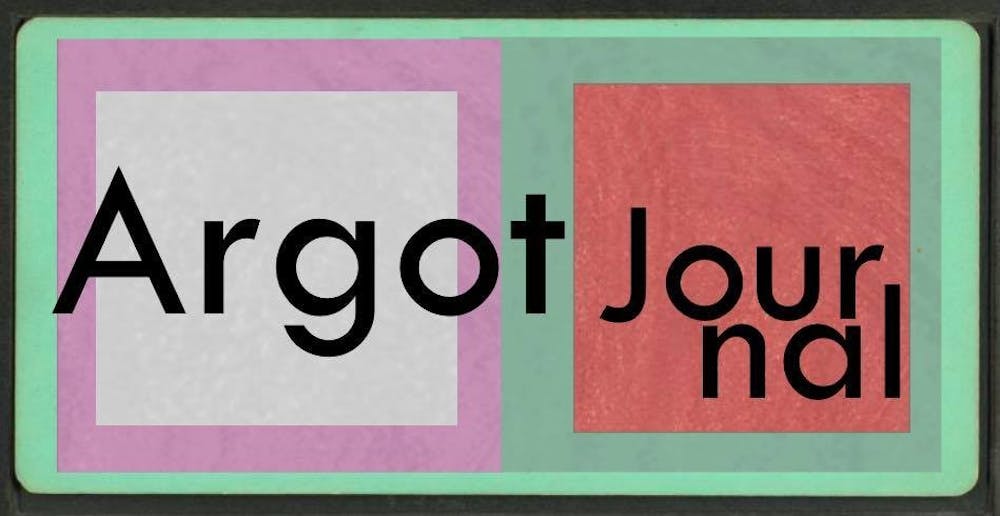In December 2016, junior Christian Cholish and senior Nadya Kronis relaunched Argot, an undergraduate anthropological research journal which examines the role of anthropology in relation to the humanities, and other sciences across various mediums. Cholish and Kronis, who are both anthropology majors, serve as co-editors of the journal.
Argot was originally established in 2007, but publication ceased after distributing one issue. In January 2016, Kronis and Cholish revived the journal with a Fall/Winter issue. At the end of the year, they bought a new domain name, redesigned the website and officially rebooted Argot with two major deviations from the 2007 version.
The first change is that they will no longer publish seasonal issues. Instead, they aim to publish two or three pieces each month. The second change is that they accept multimedia and interdisciplinary submissions in addition to traditional research projects. Submissions can include anything from films and photographs to poems and essays.
“The original journal was a PDF on the department website and was very well designed,” Kronis said. “[However] using the form of the website seemed to invite a lot more experimentation and multimedia.”
Cholish and Kronis decided to expand the types of pieces Argot publishes in order to make anthropology approachable to a wider audience, including students who are less familiar with the field of study.
“People really don’t what anthropology is or why it’s relevant,” Cholish said. “Anthropology is about being in the world. We’re trying to make Argot not so scholarly and out of touch and erudite.”
A challenge that the two editors face as anthropology majors is explaining what anthropology is. Kronis broadly defined it as the study of human culture.
“We encourage submissions that are relevant to culture whether that is culture in the US or culture abroad,” Kronis said. “There is a big social, political and historical element to culture, always. So we’re looking for things that are relevant in those senses.”
The journal’s name is taken from the French word, argot, which means the language used by a particular type or group of people. Cholish related the title to the focus of their publication.
“Traditionally in French [the word argot] came out of this idea of a specialized language that people have to communicate with each other and keep out outsiders,” Cholish said. “It’s not so much about infiltrating and figuring it out as it is about how to translate or listen to people or communicate. [Argot] is all about sharing ideas and connecting each other.”
Kronis sees potential for Argot to focus on more than just anthropological research in the future.
“[We] hope to create a real digital journal for the humanities on campus that’s undergraduate and relatively rigorous but represents a diversity of work and discipline,” she said.
Several anthropology students have already submitted work to Argot. Senior Evan Kim published a photo essay in Argot’s December issue depicting life in Tokyo, Japan and Chiapas, Mexico. He wanted to share his snapshots of society to prompt viewers to reflect on their own points of view and ideas. One picture entitled “Luxury Kimonos at Department Store” shows several women, dressed in colorful kimonos, shopping.
“It’s not uncommon to see women wearing traditional clothing on the subways or walking around, but having the juxtaposition between something very modern that we conceive as Western, like department stores and having something traditionally Eastern with authentic clothing, was interesting,” he said.
Kim believes that all students can learn from the field of anthropology.
“If you’re confused or anxious about life, take an anthropology class,” he said. “It’s extremely beneficial. It makes you think about things with different perspectives. It’s hard, but it’s healthy in the end.”
Junior Robert Lee, an anthropology and political science double major, submitted a reflection on city parks in Germany. While studying abroad in Berlin, Lee kept a journal about his experiences and used his notes to compose his parks piece. He wanted to share his thoughts and chose to share his article with Argot because it runs features that might not fit in other publications.
“Argot can demystify this major, this study of anthropology,” Lee said. “There are a lot of sects of anthropology. Argot is great because it has things that are very accessible.”
Lee values anthropology for being a subject that connects the humanities and social sciences. He encourages others to look beyond the standard definition of anthropology and seek to better understand the field.
“The textbook definition [of anthropology] - which is kind of problematic by most people - is studying other cultures,” he said. “There is this implicit underlying idea that you go to some indigenous tribe and study them which sounds colonial and weird and problematic. I think anthropology, for me, is attuning yourself to a different mode, a different temporality, a different conception of life.”





